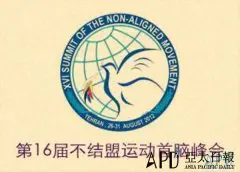Singaporean Prime Minister Lee Hsien Loong embarked on a five-day working visit to China on Sunday. In an interview before his China trip and attendance at Boao Forum for Asia, Lee said while globalization and international trade have underpinned the growth of many countries, the US has taken a "radically different approach toward trade." Singapore is such a city country that has thrived on globalization and international multilateral trade. Lee's statements showed that Trump's unilateral trade protectionism undermined Singapore's interests.
Singapore began to worry the moment Donald Trump was elected president. Trump won the election with the slogan "Make America Great Again." In the field of trade, "America First" gives priority to protecting US domestic industries and reducing the huge bilateral trade deficit between US and relevant countries. US trade policy shifted from promoting free trade and the multilateral economic system to a conservative unilateral trade protectionism.
Singapore's loss was first reflected in a Trans-Pacific Partnership (TPP) without US involvement. Originally this trade agreement was an important measure for the Obama administration to write global multilateral trading rules and reshape the global multilateral economic system. As a friendly partner of the US, Singapore has advocated the development of multilateral trade and attached great importance to the deal with active US participation and promotion. But when Trump was a presidential candidate, he called TPP a "horrible deal" and explicitly trashed it after he came to power.
Lee urged the US to approve TPP as soon as possible when he visited the US in August 2016. The prime minister suffered crushing despair when Trump withdrew the US from the deal. Trump's trade protectionism made Singapore upset about its bilateral trade and investment relations with the US. It also undermined the development foundation of Singapore's national economy, adding disasters to Singapore's sluggish economy.
Singapore's openness and multilateral trade policies have collided with Trump's conservative unilateral trade protection policies. The country not only needs to take a clear-cut stand against Trump's unilateral trade protectionism, but it also needs to seek cooperation with partners that persist in globalization, multilateral trade and multilateral economic systems, such as China. This was also the logic behind Lee's visit to China in the fall of 2017 to seek "certainty."
Today as Trump arbitrarily pursues a tough trade policy toward China, the trade dispute initiated by the US against China has sparked strong countermeasures, further escalating into a trade war. This is not a good thing for Singapore as it is worried about Trump's protectionism and China-US rivalry. Just as Lee said, a trade war would severely undermine the multilateral trading system that has brought prosperity to many countries for decades and "there will be no winners in a trade war."
Singapore's policy options will inevitably be to maintain an open mind in the economic and trade arena and work with countries including China to seek the certainty of global and regional multilateral economic and trade systems. In this regard, the theme of the 2018 Boao forum - An Open and Innovative Asia for a World of Greater Prosperity - is in line with Singapore's interests.
(GLOBAL TIMES)
 简体中文
简体中文

